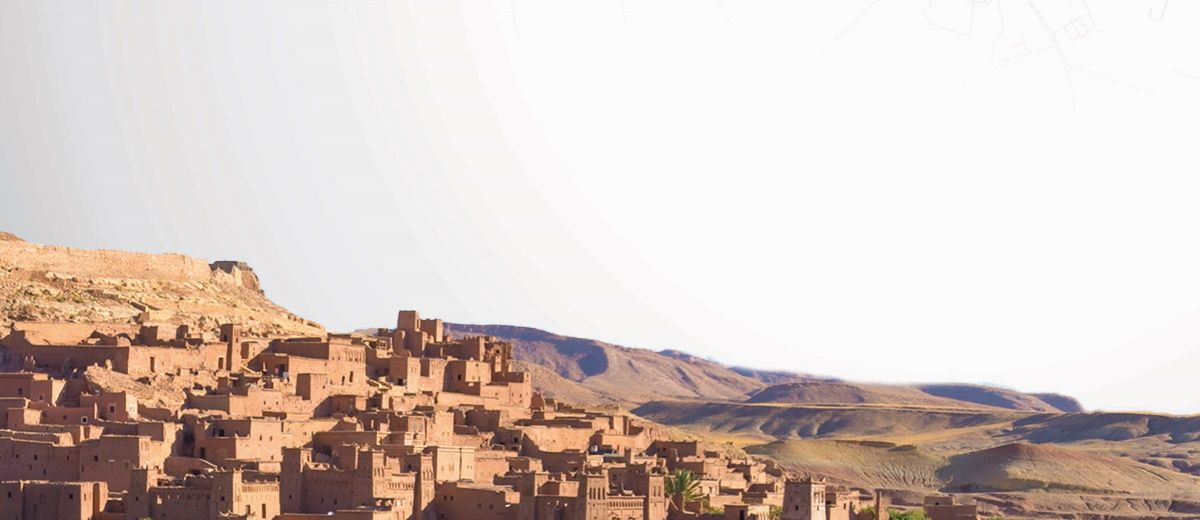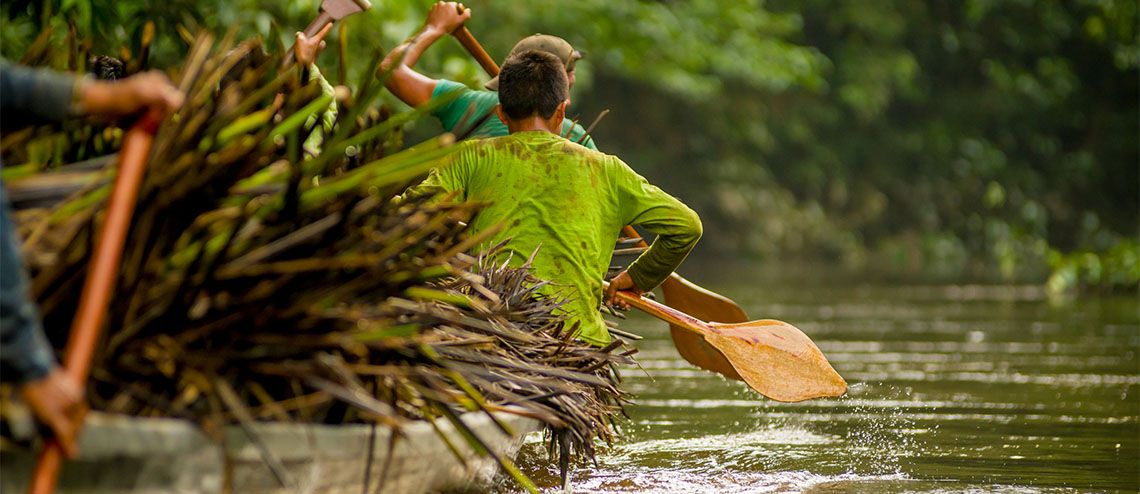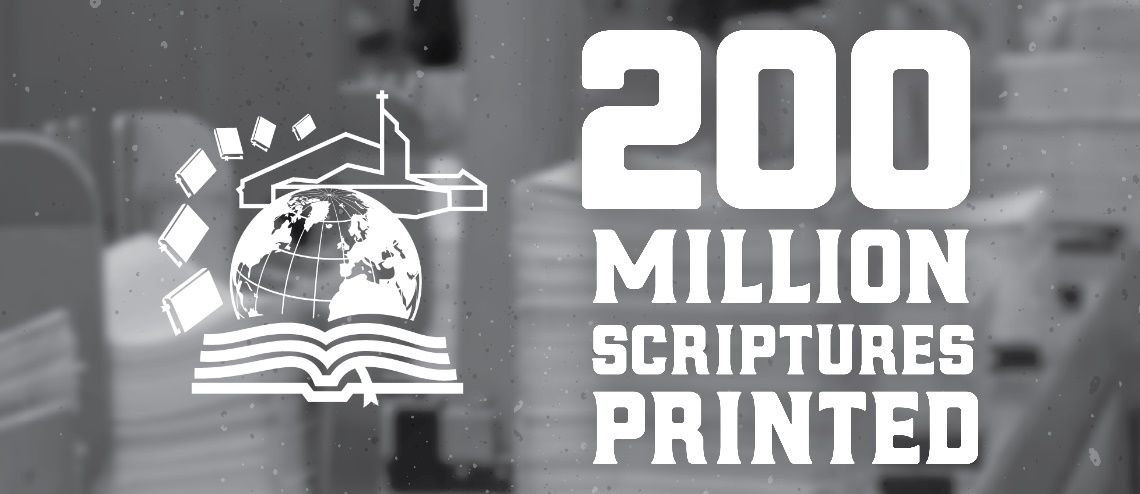A Discussion with Michael & Kristen Carter

Since there are some people reading this article who will not be familiar with you and your ministry, could you give us some background information about you and your family?
I was born in Cincinnati. I grew up going to church… but I was lost. At the end of my eighth grade year my mom moved our family to Milford; we started attending FBCM shortly thereafter. Dr. Keen was preaching one Sunday night in June of 1998. I heard a clear presentation of the Gospel and I was deeply convicted in my heart. That night, before I went to sleep, I knelt by my bed and asked Jesus Christ to cleanse me of my sin. I believed on Him and received salvation that night as a fourteen year old.
Kristen was saved when she was four years old. She basically grew up at FBCM and MCA, having been there since age five. Kristen and I became friends in the youth group and at MCA, where we were in the same class throughout high school.
Kristen announced publicly as a third grader that she felt the Lord leading her into missionary service. I was eighteen when I believed the Lord was calling me to serve Him on the mission field. God had been working on my heart during our youth group mission trips to Mexico/El Paso. I made my commitment to Him during the mission conference of my senior year.
Kristen and I were married in June of 2005. The following summer we went to India during Operation Harvest. We graduated from BSWE in 2009 after spending a year in Mongolia. We moved to North Africa in November of 2011.
We have been blessed with two children. Maya was born in Mongolia, seven months after we started our BSWE internship. Kenza was born in North Africa, almost a year and a half after we arrived on the field as missionaries.
How did the Lord lead you to minister in North Africa?
After I committed my life to God in missions, I sort of assumed that God would lead me to a Spanishspeaking country. I had taken a few years of Spanish in high school and had visited countries like Mexico, Peru and Cuba. (By the way, Kristen always thought she would be a missionary to Australia.) But partway through our studies at BSWE we began to learn more about the 10/40 Window; and we developed a burden for people who have little or no access to the Gospel.
We began to think and pray more about North Africa and the Muslim world as a result of studying and researching the 10/40 Window. Many people were instrumental in helping us look on those fields. I don’t know exactly how to explain how we knew this was where God was leading us… but it was obvious that God gave us a desire to go to the 10/40 Window.
What is the most influential religion in the area where you are working? And, how do they view “Christians” (in the broadest sense of the word)?
Islam. Over 99% of the people in our country are Muslim (Sunni). I would say most people are respectful of Christianity but the average person has never met a real Christian. Usually if a person knows anything about Christianity it is related to Catholicism or some form of Christian orthodoxy.
Besides the language, what are some key cultural differences that could have been barriers to ministry and how have you adapted?
The Israel/Palestine issue is a big one. This culture is pro-Palestine. We find it best to avoid arguing.
In America, we used to work with children in junior church and in the bus ministry. It has always been fun to do things like VBS or other programs to draw children and teach them the Bible. We can’t do those evangelistic things with kids here. Therefore, our ministry is focused on adults.
There is some discrimination against people from certain other countries, even Arab countries. If we invite a person of one such nationality to our Bible study or Sunday service it might not sit well with someone else. We’re still learning how to adapt to this “barrier.”
How is your language-learning? What method are you using to advance your language skills (language school, tutor etc.)?
This is our biggest struggle. Here, two forms of Arabic are used for communication—the regional dialect for speaking, and Modern Standard Arabic for reading and writing. We started by learning the local dialect with language tutors and helpers. I also attended a small language school for several months before it closed. Our church services and Bible studies, however, are a mix between the dialect and Modern Standard Arabic. Right now our language focus is on learning things that will help us communicate spiritual truths to people.
What positive element of Arabic culture have you been able to utilize in order to evangelize and disciple?
We can meet a person for the first time and have a religious conversation. It’s almost as natural as talking about a job or the weather. That’s not to say it’s easy for a Muslim to convert to Christianity, but I haven’t found someone yet who wasn’t willing to talk about spiritual or religious topics.
What advice would you give to a missionary praying about going to a hostile field?
- Go on an internship in a foreign country to understand daily missionary life. If possible, do your internship in a “hostile” place.
- Do your homework. Learn as much as you can about that field. Email specific questions to missionaries working in those places.
- Get your TESL, Teaching English as a Second Language, or similar certification while you’re in the US. It will most likely come in handy down the road.
- Know that some or many family and friends will not understand why you would take such a big risk in moving to a hostile place. You need to be okay with that.
- It’s vital to be a part of a team. Pray about joining one or going with one.
What have you learned about yourself since ministering in North Africa?
I’ve learned that I work better on a team, as opposed to by myself. We all have different roles to play, and by working together we really are able to accomplish more. I’ve learned that language-learning is something I have to work hard at. I’ve learned that I can lead singing although it stretches me. I’ve learned that I enjoy doing hands-on projects.
Kristen, how can your church encourage missionary ladies?
One of the most encouraging things is just knowing that the church is praying for us. Personal emails are encouraging because they let us know people care. Also, getting a card or package with special things from America is very exciting for anyone living abroad.
How have you adjusted to the culture, Kristen? Do you have a humorous story you wouldn’t mind sharing?
When we first moved to North Africa, I remember thinking, “I’m never going to understand this language and culture, it’s so different!” Little by little I have come to love so many things about living where we do. For example, I love how women rent formal dresses and get their hair done professionally to go to weddings. I love Arab hospitality. I love the craziness of driving down the road. I love being able to hop in a taxi if I don’t feel like driving (or when I don’t know how to get somewhere!) There are still so many things I will never understand (like how bare feet on cold tile will upset your stomach), but I’m so thankful how God has used all of this to humble and grow me in ways I never could have imagined.
When we first moved to North Africa, Maya would see cats and dogs lying in the street and think they were sleeping. For a while she believed they really were fast asleep. One day she surprised us by saying in a calm voice, “Well that cat’s not asleep. Mommy, it’s dead.” Almost every day she sees animal heads hanging from hooks in front of the butcher shops. She definitely knows where meat comes from.
Because missionary children are in a unique situation, they are often referred to as “third culture kids.” How will you make the most of this for your children and what advantages are there?
I think our girls have a pretty amazing life! They are growing up learning English, Arabic and French. They hear those three languages almost every day of their lives. They get to travel and be exposed to different foods and ways of life. They get to live in a very historical place and have some hands-on learning that wouldn’t be possible if we lived elsewhere. Maya said that living here has caused her to have a greater appreciation for her house and toys because she sees other people around her that don’t have as much.
What are the greatest prayer needs you both have, keeping in mind that this article will not be read until a few months from now?
Pray for our family as we transition back to North Africa. We fly back on September 30th.
Pray for our continued language learning—specifically spiritual language.
Pray for us as we continue to meet with internet contacts… giving them Bibles and witnessing to them.
Pray for our media projects on YouTube.
Pray for the internet radio ministry.
Pray for us to be effective during our second term.






